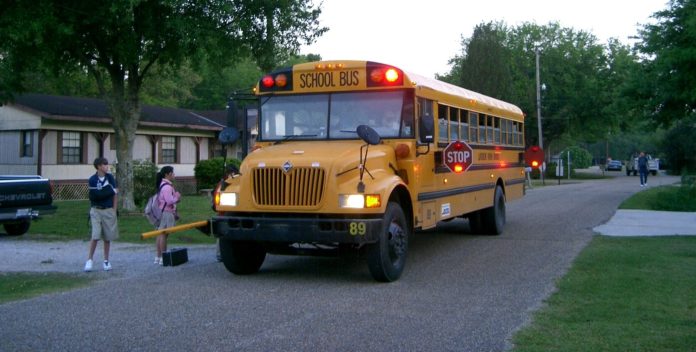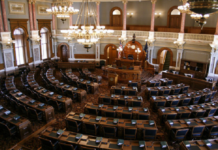School officials are asking lawmakers to exempt them from a bill that puts limits on the longstanding practice of local governments collecting extra revenue without raising the property tax rate.
Appearing before the Senate tax committee this week, educators and state school leaders asked lawmakers to be removed from the bill entirely or to delay implementation of its requirements for a year.
The bill is now awaiting the governor’s signature, but school officials are hoping to change it through another bill extending the state’s 20-mill property tax for schools.
They told the committee that the legislation — while laudable — complicates their own budgeting process, which is very different from how cities and counties operate.
They said there are many instances in which their tax levies — local option budget, capital outlay as well as bond and interest — are already set by state law apart from any new requirements that the property tax transparency law establishes.
School districts are now limited in how much they can raise in property taxes for general operating expenses through the local option budget and capital outlay, they said.
“While we believe tax transparency is important for the public, district budgeting processes and timelines are very different than those of municipalities,” State Board of Education members Ben Jones and Deena Horst told the committee.
“Mill levy rates and caps that relate to school districts are established by the school finance formula and other related laws,” they said in written testimony.
“Many are designed to provide equity in taxation across the state, therefore, every school district levy is subject to a mill rate cap or a budget limitation.
“There is concern that by not exempting school districts from a law which is really designed for municipalities, the public will be confused and will be led to believe that certain levies are subject to petition, when they are not.”
The bill requires more public disclosure when local governments collect extra tax dollars from rising property values.
Patterned after laws in Utah and Tennessee, the bill requires local governments to hold hearings and vote to accept extra revenues coming from increased property values even if the tax rate remained steady.
Local governments — now including school districts — would be required to publish notice of their intent to take in extra revenues that either come from a tax increase or from a so-called windfall that could come with increased property values.
County clerks would be required to notify every taxpayer of the hearing with a notice that showed, among other things, the tax rate and amount of property tax paid to each local government.
The so-called property tax transparency bill started raising questions before the Senate agreed to go along with a House version of legislation to include schools in the requirement. The Senate bill did not originally include schools.
Among other things, educators have voiced reservations about whether every school district in the state would have to hold hearings and a public vote — plus notify property owners — if they collected more tax revenue as a result of the statewide 20-mill property tax for education.
There also were concerns about whether the timelines spelled out for local governments in the bill would parallel the same schedule that school districts follow.
The bill specifies that a public hearing may not be held earlier than Aug. 10 and no later than Sept. 10.
School district budgets are due to the county clerk by Aug. 25, which school officials said would limit the ability of districts to engage the public.
Mark Tallman, lobbyist for the Kansas Association of School Boards, said just about every part of the school funding system is already either set by state law or features protest petitions that give voters influence in the process.
The League of Kansas Municipalities didn’t see it the same way, however.
“As Kansas enters a historic moment with transparency, we encourage this committee to not make modifications to SB 13 to remove schools,” the league’s deputy director, Trey Cocking, told the committee.
“This is an important component to ensuring the property owners’ entire bill is transparent, not just a select portion of the bill,” Cocking said.
Republican state Sen. Molly Baumgardner of Louisburg, a member of the Senate tax committee, believes the transparency bill should still apply to schools.
“When you are looking at that property tax dollar and where is it going, I think taxpayers want and need to see that,” Baumgardner said.
“They want out and part of it is the concern about how we’re going to meet these dates and deadlines,” she said.
“Well, there is a way to meet dates and deadline, and sometimes that means you’re going to have to start the process a little earlier,” she said.
It remains unclear how the new twist to the transparency bill might affect the governor’s decision whether to sign the bill.
Last year, Gov. Laura Kelly vetoed the bill because it would have imposed more burdens on local government.
Republican state Sen. Caryn Tyson declined to say whether she would insist that schools remain subject to the transparency tax law.
“Some of these may be wants, not needs,” Tyson said of the schools’ concerns.
“We need to disinguish between what is accurate in the scheduling,” she said.
Tyson said she would hate to see the governor veto the bill a second time.
“The taxpayers are fed up,” Tyson said. “They want representation. They want to know who is raising their property taxes and why, and Senate Bill 13 allows for that.”















